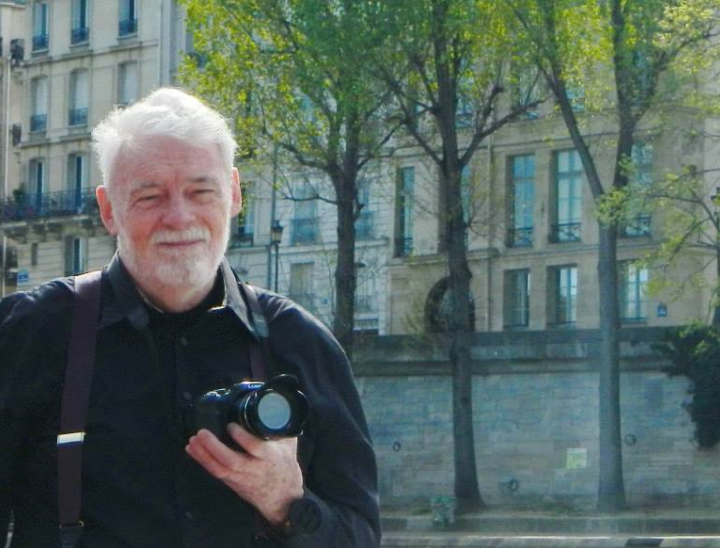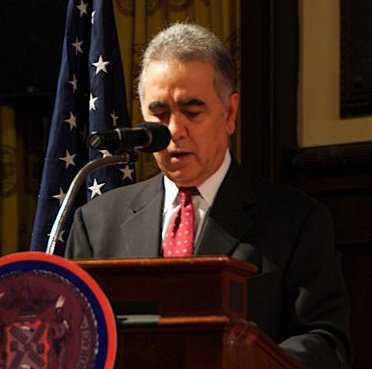FETULLAHIN GELISINI MUHAFAZAKAR BIR HIRISTIYAN AMERIKA VE LAIK TURKIYE ICIN BUYUK BIR TEHLIKE OLARAK GOREN BIR ORGANIZASYONUN WEB SITESINDEN ALINMISDIR. YAZININ ICINDE, BU WEB SITESI, GORUSLERINI TURK ALEYHINE IRKCI YORUMLARA KADAR UZATMISDIR. BILGILERINIZE……
ISLAMIC SOLDIERS INVADE SAYLORSBURG PA.
COMMUNITY UNDER SARACEN SURVEILLANCE
OBAMA TURNS BLIND EYE TO MUSLIM FOREIGN MILITIA IN PENNSYLVANIA
by
Paul L. Williams, Ph.D.
Christian militias have been raided in Michigan and Ohio. Its members rounded up and tossed in prison. Its cache of weapons confiscated.
But a well-armed Muslim militia – – composed not of American citizens but foreign militants – – operates under the noses of federal and state law enforcement officials.
If you doubt it, pay a visit to Saylorsburg, PA, in the heart of the Pocono Mountains.
“These guys use fully automatic weapons – – AK-47s – – for target practice,” one local businessman says. “We called the FBI but nothing has been done to stop them.”
“The Muslims have been here for years,” another resident says. “They’ve been engaged in training for guerilla warfare.”
The Muslims in question are Turks who occupy a 45 acre compound that is owned and operated by Fethullah Gulen.
Entrance to the compound is forbidden to outsiders.
Sentries remain on duty – – day and night – – at a hut before the wide metal gate. Within the hut are high definition televisions that project images from security cameras.
Residents complain of a low flying helicopter that circles their community in search of any un-wanted intruders to the property.
At the heart of the compound is a massive chalet that serves as Gulen’s residence.
Gulen has been identified as one of the world’s richest and most powerful Muslims – – and also as the most dangerous.
From his base in Pennsylvania, he has been responsible for the replacement of the secular government in Turkey with an Islamic regime.
With assets in excess of $30 billion, he has wielded political allegiances in Washington that have resulted in the placement of Turkish Muslims in the CIA, NSA, FBI, and other national security organizations.
He has created well-heeled lobbies to promote the cause of Islam and to develop Islamic candidates for political office.
He has formed close friendships with Bill and Hillary Clinton, former Secretaries of State James Baker and Madeleine Albright, and George W. Bush.
He has also established over 90 Islamic schools (madrassahs) throughout the United States, where students are indoctrinated in the tenets of political Islam. These charter schools are funded by American taxpayers.
One school – – Tarek ibn Zayed Academy (TiZA) in Minnesota – – has been so radically Islamic and subversive in nature that the Minnesota Department of Education issued two citations against it and the American Civil Liberties Union is suing it.
The purpose of every Gulen school, according to the Middle East Media Research Institute, is train Muslim students to become lawyers, accountants, and political leaders so that they can take an active part in the restoration of the Ottoman Empire and the Islamization of the Western World.
Gulen also imports thousands of graduate students from Turkey – – at the expense of U.S. taxpayers – – to study at American universities. More foreign graduate students in the U.S. hail from Turkey than from any other country.
Several of these students live at the compound and serve as guards and paramilitary officials. They do not wear skullcaps or Islamic garb but rather business suits with white shirts and ties.
One, encountered by this reporter on a recent visit, attended Marywood University in Scranton, PA; another studied at East Stroudsburg University, several miles from the compound.
Gulen’s stated dream is to restore the Ottoman Empire and a universal caliphate.
He fled Turkey in 1999 to escape arrest for creating a terrorist organization – – the Fethullah Gulen Community.
He received protection from high-ranking officials of the Clinton and Bush Administrations, who believed that Gulen could play a decisive role in the struggle over Central Asia’s oil and gas wealth. This belief was based on the premise that Muslims within the newly created Russia republics could be swayed away from the influence of Iran and Shiia Islam by Gulen’s doctrine of Sufi Ottomanism.
With CIA aid, Gulen established hundreds of madrassahs and cemaats (Islamic communities) not only in his native Turkey but such places as Uzbekistan and Turkmenistan.
Gulen’s triumph over his secularTurkish foes came with the election of November 3, 2002, when the Justice and Development Party (a party which he created from his base in Pennsylvania) gained control of the Turkish government.
Turkey’s Prime Minister Recep Tayyip Erdogan is a Gulen disciple – – as is Turkey’s President Abdullah Gul.
Thanks to such Islamists, Turkey has transformed from a secular state into an Islamic country with 85,000 active mosques – – one for every 350- citizens – – the highest number per capita in the world, 90,000 imams, more imams than teachers and physicians – – and thousands of state-run Islamic schools.
Despite the rhetoric of European Union accession, Turkey has transferred its alliance from Europe and the United States to Russia and Iran. It has moved toward friendship with Hamas, Hezbollah, and Syria and created a pervasive anti-Christian, anti-Jewish, and anti-America animus throughout the populace.
Gulen presents himself as a humanitarian, a moderate Muslim, and a proponent of interfaith dialogue.
But a visit to the compound provides an opposite impression. The property is off-limits to all visitors and intruders; it is guarded by radical Turks who seek to establish a universal caliphate whose jurisdiction will include the USA, and the Golden Generation Worship and Retreat Center, which supports interfaith relations, is a sentry hut.
But Gulen is a master of deception.
In one of his directives to his followers, Gulen proclaimed that in order to reach the ideal Muslim society ‘every method and path is acceptable, [including] lying to people.’”
In the past five years, several attempts have been made by The Department of Homeland Security to deport him. But in 2008 a federal court ruled that Gulan was an individual with “extraordinary ability in the field of education” who merited permanent residence status in the U.S.
Strange to say, Gulen lacks any formal education and three of the letters attesting to his “extraordinary ability” came from CIA agents.
Fethullah Gulen has powerful friends in the West. Tyranny is always better organized than Freedom.
From Babbazee:
Also mentioned is the interesting connection with Fethullah Gulen. It says that the Gulen Gang and the Ihlas Gang have close, insider connections. This would mean that Grossman, as a consultant to Ihlas, and a vice-chairman of The Cohen Group, is that much closer to Gulen and his Nurcular. If you don’t know about the Nurcular, there’s an excellent little backgrounder on Gulen and his gang here, by Aland Mizell.
From Mizell’s article, Gulen operates way behind the scenes, something that he began at least as far back as Turgut Ozal’s time. Ozal, the guy who negotiated the Turkish-Islamic synthesis with the Turkish general staff, was a member of Gulen’s Gang. You might ask, why would the official gatekeepers charged with maintaining the purity of Kemalism go along with the creation of this synthesis? Simple. They thought they could control it, kind of like they thought they could control their creation of Turkish Hezbollah. Their attitude is that if there will be communism in Turkey, they will bring the communism. Ditto on Islamism. When it became clear that Gulen was intent on taking control of the state from the Turkish general staff, the pashas were willing to do whatever was necessary to maintain their power.
With that, Gulen high-tailed it to the US, where he sits now, in control of the same network that spreads the same ideology that has turned Turkey into a highly anti-American place (as well as highly anti-semitic). Let’s not forget that Gulen’s network is worldwide. Given the connections that we are digging up on the Deep State in America, it is no longer so surprising to see Gulen safe and sound under the sheltering wing of his American protectors.
Isn’t it fascinating about all the good dirt that never makes it into the American media? Again, why is that?
I wonder what Sibel Edmonds would say?
Tags: Barack Hussein Obama, Creeping Sharia, Fethullah Gulen, Homegrown Jihad, Illegal Immigration, Islamic Conquest, Post-America, SAYLORSBURG PA.












